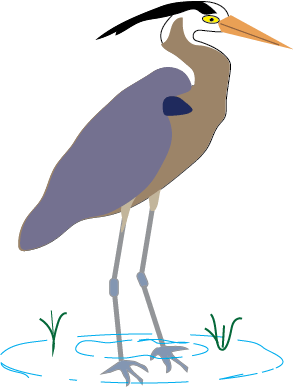Writing Guidelines
These writing guidelines will help you plan and assess your student's writing.
These homeschool writing guidelines will enable you to:
- Differentiate three types of writing activities
- Focus on the goal of writing for each age level
- Anticipate appropriate length of written assignments
3 Types of Writing Assignments
Academic
Academic writing assignments teach students how to write.
Students need to learn to communicate information in an organized format. Academic writing starts with simple sentences and continues through the development of paragraphs, essays, and thesis development.
Young writers learn to work from outlines they have developed. It is a progressive process that takes several times.
Creative
Creative writing activites stretches their writing ability. These assignments help students develop their "voice" in all of their writing. It allows them to use their imagination to improve their writing skills.
Research Paper
The research paper is a form of academic writing, but it holds a special place in writing instruction. Because of the time commitment required, these are assigned frequently.
Starting in fifth grade, students should begin writing a "research paper" once or twice a year. This is a larger assignment which incorporates the writing skills they have previously learned in their on-going academic writing.
How Often Should My Student Write?
Of all the questions asked, this is one of the writing guidelines that is most variable.
A GENERAL RULE OF THUMB: Two writing assignments per week at the appropriate grade level: one academic and one creative
Of course, students should be writing every day. If you are using a curriculum that incorporates writing sentences and paragraphs on a daily basis, then one writing assignment a week for academic writing would be appropriate.
On the other hand, if the writing done in your program is primarily filling in workbook blanks, this does not give enough opportunity to develop their own writing style and learn how to write. In this case two to three writing assignments a week would be appropriate. This would include both academic and creative writing activities.
Long Term Goals
Every writing assignment should have a specific goal. But it helps to keep in mind the long-term writing guidelines to help students slowly progress in their writing skills.
Kindergarten through 2nd Grade
At this age, students are learning to write sentences.
Seem to easy? Well, it is not. If they do not have an innate comprehension of what constitutes a sentence, you will have a much harder time when they start writing paragraphs.
Not only do they need to know how to write a sentence, they need to recongize the two opposites: sentence fragments and run on sentences.
At this stage, students learn basic mechanics as well:
-
Start sentences with capitals
- End sentences with periods
- Capitalize names of people, holidays, specific places
3rd to 5th Grade
Paragraph development is the long term goal of writing at this age.
If sentences are the bricks of a writer's composition, cohesive paragraphs are the walls. The reader is following the message and logic of the message point by point. Those points are contained in the paragraphs.
6th to 8th Grade
The long term goal for middle school is to write logical essays and reports.
This skill is highly related to the paragraph development learned earlier. Point by point, a logical message must be communicated.
At the same time, more is expected in terms of mechanics.
- Identifying paragraphs
- Punctuating complex and compound sentences
- References and Biographies
9th to 12th Grade
In high school the students begin to develop thesis statements and thesis papers.
At this point, they not only are reporting their knowledge of a particular subject, but they develop perspective and persuasion as well.
Length of Written Assignments
It would be foolish to state every paper has to be a specific length. Both the ability of the writer and the purpose of the paper are going to affect the length.
Here are a few basic writing guidelines regarding the anticipated length of an academic writing assignment by the end of specific grade levels. Keep in mind these are only guidelines.
Kindergarten through Second Grade
End of Kindergarten: 2 sentences
End of First grade: 4 sentences
End of Second grade: 6 sentences
(Hey, we are ready to start paragraphs now!)
Third through Fifth Grade
From the third through fifth grade, the student should be focusing on mastering paragraph development.
End of Third grade: 3 paragraphs
End of Fourth Grade: 4 paragraphs
End of Fifth grade: 5 paragraphs
Middle School Writing
In the sixth through eighth grade students should be developing their essay writing skill.
End of Sixth grade: 6 - 8 paragraphs
End of Seventh grade: 7 - 10 paragraphs
End of Eighth grade: 8 - 12 paragraphs
High School Writing
At this level, the student should master paragraph development and essay development. They refine their skills as they organize content around a thesis statement.
WARNING: Don't rigorously enforce these writing guidelines; they are merely a rough estimate. A seventh grader might appropriately produce an excellent essay of five paragraphs that may be watered down with the addition of two or more paragraphs that are less relevant to the central theme.
Guidelines for the Research Paper
An annual research paper allows students to organize content into categories and sub-categories. It stretches their writing ability, their ability to use reason and logic, and their knowledge of the content of the paper.
Guidelines for Length
One page per grade level.
For instance, a five page paper would be assigned to a fifth grader, and a nine page paper to a ninth grader. When the student goes off to college and gets the standard assignment for a ten page paper in writing composition, he or she will simply think, "That's nothing, I had to do 12 pages in high school."
Writing Curriculum
Write On: The Kid Friendly, Mother Pleasing, Gentle Way to WriteThis curriculum has more writing guidelines in the informative instructor's guide and a wide variety of interesting and motivating writing activities for third grade and older.
Write On: watch their writing take off.

